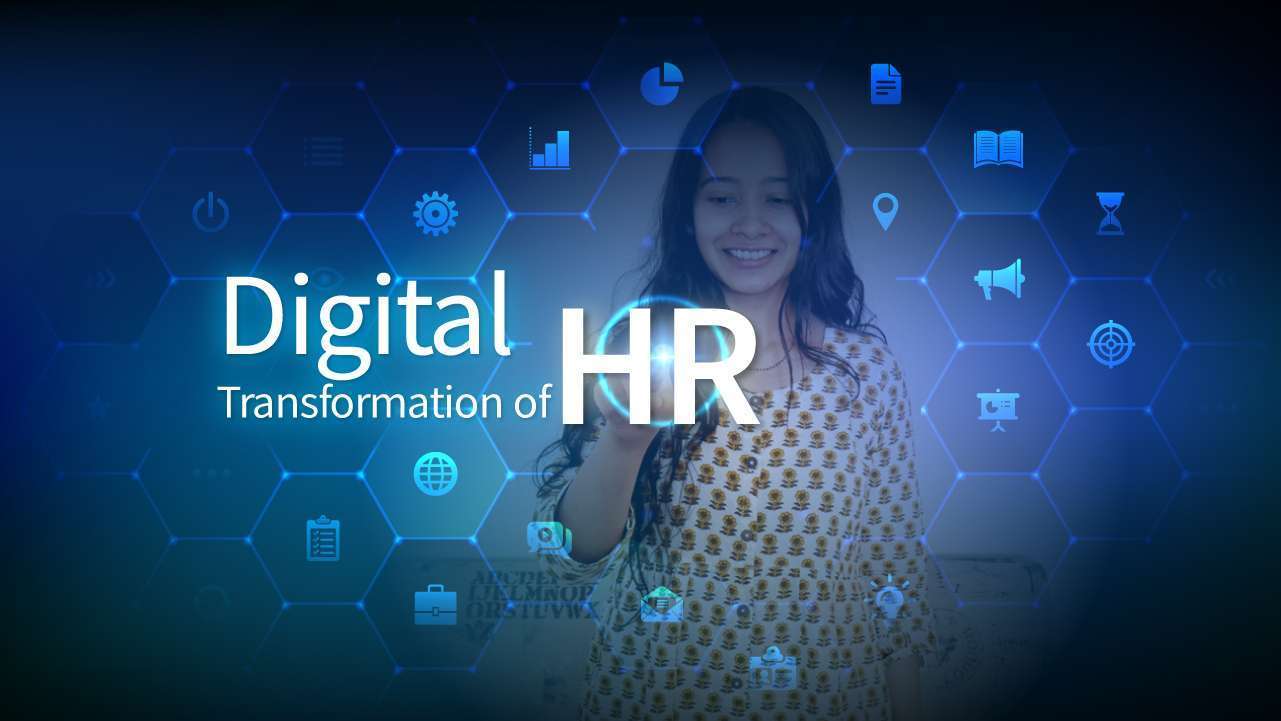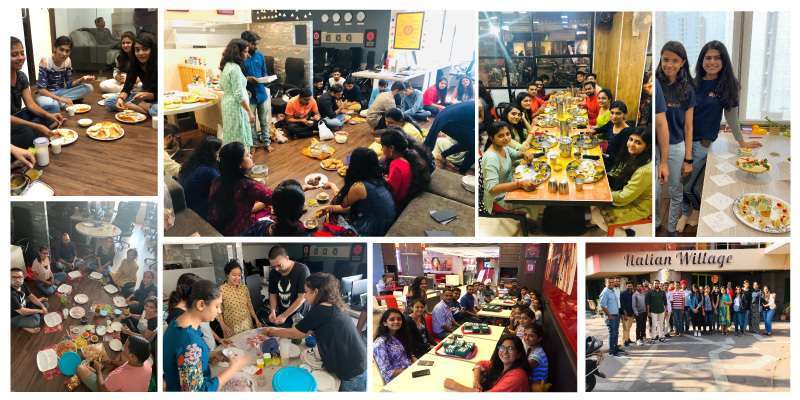Digital Transformation of HR

While ‘HR Digital Transformation’ is becoming a new buzzword among HR Professionals, many of them fail to understand the real meaning of the word. For a good reason, it is becoming a buzzword, given the fact that technology has changed the potential ability of every field, and thus why not the human resource department. However, digital HR transformation is a different thing. Here’s our shared knowledge to help to dive deeper, into the human resource digital transformation.
What is HR Digital Transformation?
Human Resource digital transformation is a process of changing operational HR processes to data-driven automated processes. The HR team takes up the dual challenge of transforming the operations and the workforce and the way of working. While businesses are growing exponentially by implementing AI, blockchain, machine learning, and much more; the HR team is still stuck with papers and excel sheets to interpret data.
In simpler terms, the HR digital transformation is not only about HR, it also involves the organization as a whole.
Why HR digital transformation?
For the longest, human resource professionals have been consumed with face-to-face communication and a lot of paperwork. Everything has been about paperwork- right from payroll, attendance, performance management, candidate management, onboarding process, etc. The digital transformation of HR is moving these processes to technology-based systems and making data-driven decisions.
HR digital transformation starts with the leadership, culture, and the way the organization works. Caring about the employees’ needs and implementing the learnings is the foremost important thing in the company culture and thus in HR digital transformation. Also, a company cannot be fully digitally transformed. It is an ever-evolving process that will support the way an employee works. The ultimate goal of any transformation has to be supporting the people whenever needed, right from how they want to be hired to how they want to work.
The major benefits which a company will be enjoying with the digital transformation in HR include simplified monitoring, improvised employee experience, data-informed decision, etc. Digitalization helps the company save time and money by improving communication, providing a better environment to work in, and driving productivity. While HR leads the digital transformation, it not only involves the leaders but also engages employees and ensures picking up the right technology & process.
Myths about HR Digital Transformation
- HR Digital transformation will make the culture robotic: FALSE. Implementing a self-service employee portal cuts down the facetime for the employees and the HR. Through this, the employees are satisfied as they get what they need and efficiency is also improved.
- It is merely adapting to new technologies: HR digital transformation is not just introducing new technologies, but also amplifying the culture, aligning the company goals, and working as a people-centric business. The team must be led by the adoption of transforming the environment and making the employees feel invested.
- The transformation will be completed once certain tasks are done: There is no end goal for the transformation. It is a continuous process that is designed to support the company culture and the environment people work in.
- Works only for young talents: These user-friendly technologies are designed in a way that even older employees can get used to them easily. It also shortens the learning curves and enables quick information delivery.

How to bring in a Digital Transformation of HR in an organization
For the HR digital transformation approach, there is no one-fit-all. Every organization is different and thus has its own specific needs. Here are a few key stages which we have practiced and believe that all companies should check to make the shift.
- Keeping first things first, the HR digital transformation starts with identifying the goals and ways to achieve them. When figuring out the goal, figure out the gap and the room for improvement in the system, culture, and process.
- Open communication with the leader and employees is the key to achieving success. Make sure that you bring everyone on the same page before proceeding with the implementation. It becomes important for people to see an outline of the goal, status, and gap before they work toward them.
- Create a plan on how you want the new HR system to look and function. Make sure it addresses the identified gaps for improvement. Get involved with representatives of every department and make sure that the chosen technology serves their needs too. Get back to the management and employees for their feedback and refinement.
- Put your plans into action and implement the new HR tools and processes. Once the process is smoothened, measure the progress over time and ensure it matches the needs of your HR department along with the needs of employees and the overall organization.
How can HR support digital transformation?
While talking about digital transformation, HR professionals are the ones who play a vital role in bringing in the transformation of the whole organization. Innovation in culture is quite essential and the absence of which might hamper the digital transformation. Here’s how the HR department supports digital transformation:
- By hiring new talents who align with the digital goals and also have capabilities like design thinking, data-oriented mindset, etc
- Create an agile and innovative culture that allows pursuing the changes and encourages to take initiatives.
- Establish the right communication stream, as transformation is a long-term process and requires strategic planning.
- Align with business analysts to adopt digital transformation
Though with the digital transformation organizations are replacing the existing technologies, it is more about the adoption of something new, and how well the employees adapt to the same and work together to support the goal. The HR department is the most important pillar of support for the organization, as they bring in the most valuable resources and talents to succeed. The faster HR transforms itself, the more transformation it can bring to the business.
To conclude, we can say that digital transformation is implementing digital technologies with the business process to improve the overall productivity of the organization and thus enhance the customer experience. Have an idea to automate your HR process? Have a word with us now!!



